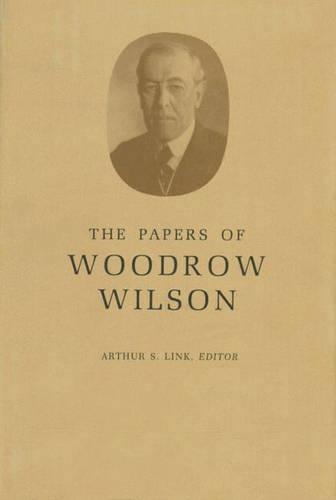
The Papers of Woodrow Wilson, Volume 43: June 25-August 20, 1917
(Hardback)
Publishing Details
The Papers of Woodrow Wilson, Volume 43: June 25-August 20, 1917
By (Author) Woodrow Wilson
Edited by Arthur Stanley Link
Princeton University Press
Princeton University Press
30th January 1984
United States
Classifications
Professional and Scholarly
Non Fiction
973.913
Physical Properties
Hardback
596
Width 152mm, Height 235mm
1077g
Description
Domestic economic and military mobilization is well underway as this volume opens. Wilson, though heavily burdened, is determined to maintain oversight and, in many cases, control over the organization of the war effort and the conduct of diplomacy. While Congress debates the Lever food and fuel control bill, he rallies his friends to defeat an amendment establishing a congressional Joint Committee on Expenditures in the Conduct of the War. During this period Wilson deals with strikes of copper miners and recurrent threats of logging strikes in the Northwest. Troubled and embarrassed by the arrest and imprisonment of National Woman's Party picketers of the White House, he pardons the prisoners and begins a quiet campaign for a federal suffrage amendment. When Postmaster General Burleson uses the Espionage Act to deny mailing privileges to The Masses, Wilson attempts to intervene, and he orders investigations in other cases of alleged civil liberties violations. At Wilson's virtual ultimatum, the British government organizes a full scale convoy system. In June the President persuades Secretary McAdoo to make emergency loans to the British. Wilson adamantly refuses to accept Japanese claims to a "paramount" interest in China. As the volume ends, he is at work on a reply to the Pope, who has suggested his own peace plan only two weeks after the proposals of the German moderates.
Reviews
"An essential purchase for college libraries."--Library Journal "... an unprecedented illumination of Wilson's activities and ideas..."--The Journal of American History "... Arthur Link and his associates ... set a high standard indeed both for productivity and editorial excellence."--North Carolina Historical Review "Every college library should plan to acquire the entire series."--Choice
Author Bio
Arthur S. Link is Professor of American History, Princeton University.
